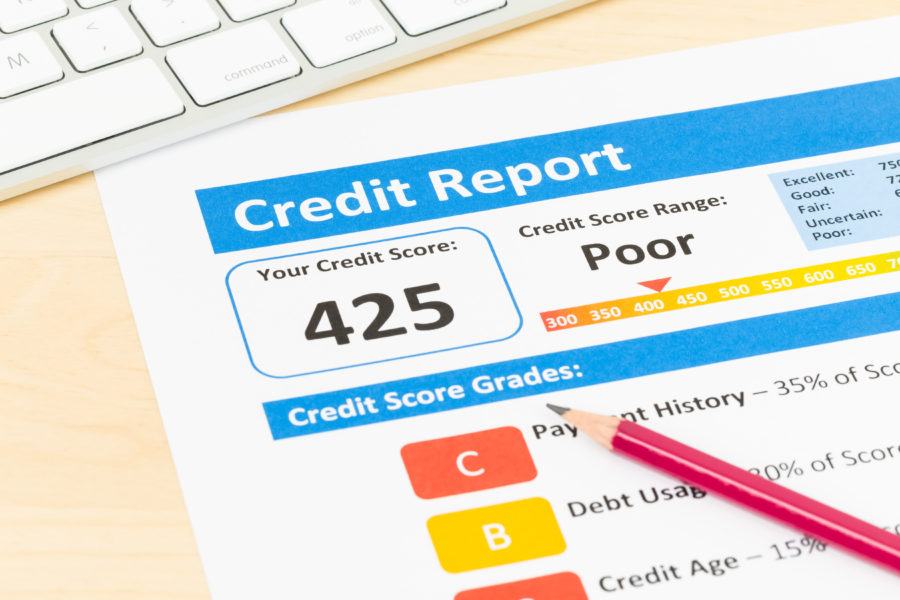Bad credit can start to feel like a cartoon cloud following you around wherever you go, always threatening to send down rain when you least expect.
Of course, a lower credit score tends to correspond with higher interest rates and a more difficult time getting approved for loans.
But your credit score can affect other facets of your life, too, from your ability to get approved for renting or buying a home to whether or not you get your dream job.
It’s in your best interest to raise your credit score, both for your financial health and your overall well-being. Keep reading to learn more about the factors that affect scoring and what you can do to get out from under the cloud of bad credit.
Know the Factors Affecting Your FICO Score

To improve your credit rating, you first need to know which factors affect it. Investopedia breaks down the five biggest factors by percentage as such:
1. Payment history
35 percent of your score boils down to your track record on paying bills. The lateness of payments will lower your score, as will debts going to collections, bankruptcies, foreclosures, settlements, etc.
2. Amount you owe
30 percent of your score considers how much you owe and what percentage of your credit limit you’re currently using, also known as a “credit utilization ratio.”
3. Credit history length
15 percent of your FICO score depends on how long you’ve been using credit. A long, solid history is preferable, but a short one without errors is generally all right.
4. New credit
10 percent of your score looks at recent behavior, like what lines of credit you’ve applied for and which accounts you’ve opened recently.
5. Types of credit you’re using
10 percent of your score examines what types of credit you have, like credit cards, loans, mortgages, etc. and the number of total accounts you carry.
Right off the bat, you can probably identify at least one area here that can use some improvement. Improving your score is a matter of doing things right—but also avoiding missteps.
For instance, you may think it’d help your score to close out older store credit cards you aren’t using. However, these can contribute to your length of history.
A better strategy is using them regularly for small purchases while paying back the entire balance each month, or at least keeping them open.
Know Your Credit Score
Sure, it sounds simple. But many Americans are actually in the dark about their exact rating—especially if it’s been awhile since they’ve last inquired.
You can operate day to day without explicitly knowing your score, but knowledge is power when it comes to overcoming bad credit.
Luckily, it’s getting easier to check credit scores. Apps like Clarity Money allow users to keep an eye on their credit scores for free, providing clear updates like, “Your score has increased by 10 points” paired with the date of its last update.
This is much simpler than having to request a full report from the three predominant reporting agencies—although you should also do this once per year.
Practical Advice for Improving Credit
Here’s the positive spin: If you already have bad credit, you have a lot of room to grow. The best thing you can do is pay your credit card bills in full, on time. If you have a large outstanding balance, chip away at it by paying more than the minimum.
This may require some savvy budgeting and lifestyle changes, but the payoff will be well worthwhile. Keep all existing accounts open to maximize the age of your accounts and keep your credit utilization ratio low.
Getting out from the cloud of bad credit will help you see the sun once again. Know your score and which factors affect it, then take action to positively influence your rating.
More Read:
- Here’s What You Need to Know About Consumer Credit
- If You’re Giving Out Your Credit Card Information Over the Phone, You Should Take These 4 Precautions
- What to Do When You Have Bad Credit and Need Money Fast
- From Fair to Fabulous: 5 Excellent Credit Cards for Fair Credit
Author: Kayla Eric
















